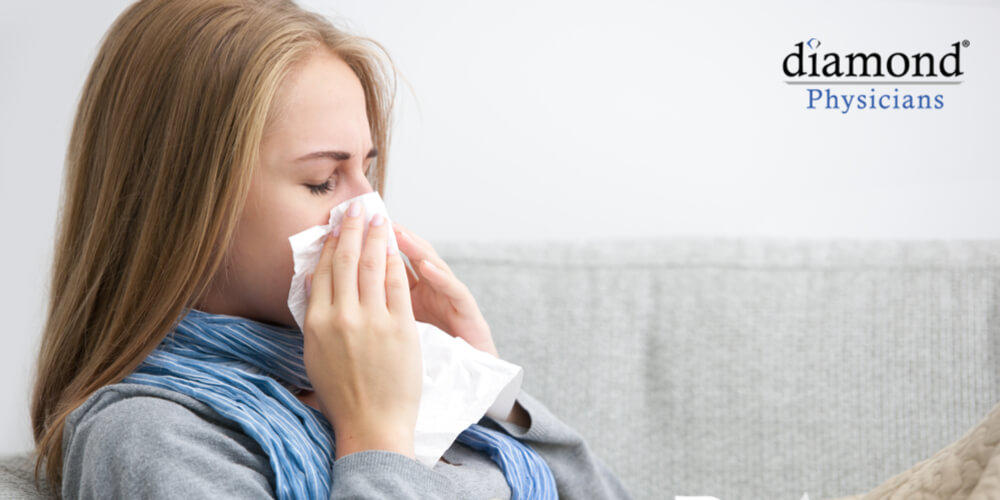Allergies are your immune system’s response to different allergens in the environment. Your body recognizes pollen or another allergen as a threat and works hard to defend itself against the offending agent. You can end up experiencing the same symptoms as you would if you were exposed to a cold virus. Sneezing, runny nose, itchy, watery eyes, sinus congestion, wheezing, hives, low grade fevers and even stomach aches are common with allergies.
Seasonal allergies affect 67 million Americans every day, and allergies are particularly horrible hear in Dallas, TX. We have all seen the yellow dust on our cars and sidewalks, but it’s actually the microscopic spores that you can’t see with the naked eye that can cause the immune response.
Certain locations and certain seasons are worse than others. It’s not only spring, but also fall and summer have their own increased activity of allergens, especially grass and weed pollens. With spring just around the corner, we are now approaching the peak tree pollen season.
What can you do to prevent allergies? Keep an eye on local pollen counts. And if you are traveling check pollen counts at your destination. Pollen counts are used to track pollen concentrations in the air. You can look to see your pollen counts in your city on most weather sites. Counts range from 0-12. The pollen counts are the highest between 5am and 10am, so limit your outside activities in the morning.
When pollen counts are high (9.7-12), keep your windows closed in your home and car to avoid letting pollen in. Set your air conditioners to re-circulate mode, to avoid drawing in outside air. You can wear sunglasses to protect your eyes from pollen when you are outside. Remember to wash your face and hands after you’ve been outside to remove pollen. Also, change and wash your clothes if they’ve been exposed to pollen. It’s very important to bathe and wash your hair at night to prevent pollen from getting on your bedsheets. And finally, try to minimize contact with items that have come in contact with pollen, such as outdoor pets and furniture.
If all else fails, there are numerous over the counter treatments including antihistamines, nasal sprays and sometimes a prescription medication is required. Diamond Physicians Good luck this spring!
